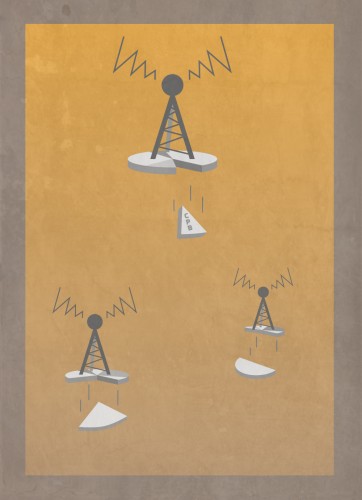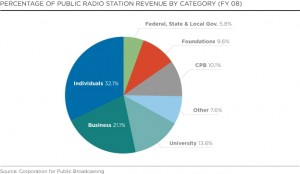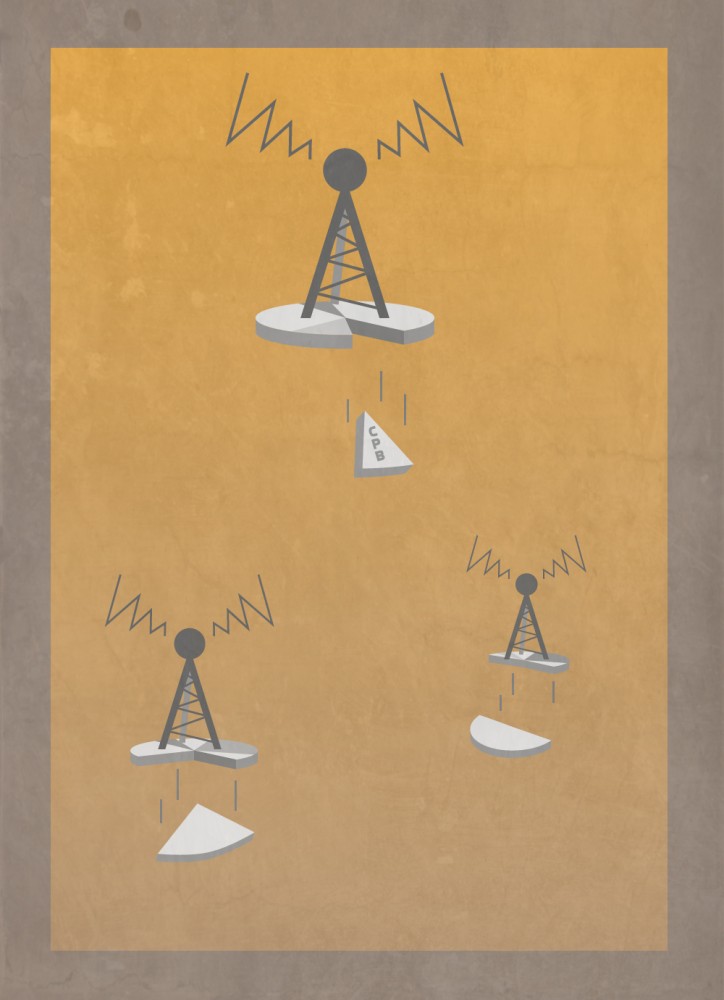Although small community stations rely heavily on government funding, bigger organizations like NPR and WBUR are mostly supported by underwriters and donors, while government funding constitutes only a fraction of their overall budgets.

“Big stations like WBUR will be fine, but little community stations won’t stand,” said Professor Anne Donohue of Boston University’s Broadcast Journalism Department. Donohue has 21 years of experience in radio, including public stations NPR, WBUR and WGBH.
Sam Flemming, WBUR Managing Director of News and Programs, is also concerned about the bill’s effect nationally. According to Flemming, six percent of WBUR’s overall budget comes from funding provided by the government.
“We would survive a six percent cut if [the proposed budget cuts] were to happen, but some of the smaller stations in America, who depend on government support for a much higher percentage of their budget, might not survive,” Flemming said. “That could potentially cripple the current national system for public broadcasting that now reaches almost every American.”
Flemming emphasized the importance of public broadcasting in that it works in the best interest of the public that it serves, as opposed to commercial broadcasting is more motivated towards making a profit.
“Commercial broadcasting is driven by advertising and trying to make a profit for owners and shareholders,” Flemming said. “No one does the kind of journalism public radio provides for America. We believe this special kind of journalism should be treasured and preserved.”
Commercial stations take advantage of funding cuts when offering to buy out small community stations that cannot stay afloat after getting cut off from government funds. There is only so much air space available, and what were considered to be public frequencies are slowly turning over to commercial stations.
“My biggest fear is that we will develop into commercial stations,” Donohue said.
This Republican-backed bill may cause small public stations to struggle without government funding. Republicans have attempted to cut funding to public broadcasting before, because they feel that public news services are hostile toward right-wing causes. Some claim that commercial stations deliver more balanced news, despite working in the interests of their advertisers. Although it is typically supported by more liberal listeners and organizations than conservative ones, public broadcasting is dedicated to being an unbiased public news source.
At public stations, government funding is commonly used as “seed money” to launch new programs, Donohue said. However, donations and underwriting, which come from individuals and businesses, work to support already-existing programs.

“The change will not be in what’s removed, but how new things are created,” Donohue said. “There needs to be some cushion for creativity.”
This bill puts the future of public broadcasting at risk by prohibiting the expansion of programming. People will continue to support the programs they know and love, but it will be increasingly difficult to find funding to start new projects. Public stations continue to receive this kind of support because they provide high quality, independent journalism.
This level of quality has persisted even over the recent years where the government has been steadily decreasing their support. Although at WBUR, for example, the six percent statistic has remained constant over the past several years, “that is like a cut because of inflation,” Flemming said.
In Donohue’s experience, listener and brand loyalty within the public broadcasting community wins out over budget crises. NPR depends on their affiliates and listeners to maintain a demand for quality programming.
“The growing number of public radio listeners speaks to the hunger for independent local media sources that help make sense of what’s going on in their own community and around the world,” said NPR CEO and President Vivian Schiller in a statement released earlier this month.
Organizations like 170 Million Americans for Public Broadcasting and MoveOn.org Civic Action have been responding by providing petitions in opposition to the proposed budget cuts, proving the public’s interest in independent broadcasting. While NPR isn’t in direct jeopardy of disappearing, they still need listener support to back their journalistic reputation.
Want to do more than sign a petition? Find volunteer and donation opportunities at NPR.org, PBS.org, WBUR.org and WGBH.org.



Quote from the article: “Sam Flemming, WBUR Managing Director of News and Programs, is also concerned about the bill’s affect nationally.” In this sentence the correct word is EFFECT not AFFECT.
Thanks Josefina, fixed. Sometimes they slip by.
“Although small community stations rely heavily on government funding” is incorrect, the article on whole a shill for NPR. Community radio WCUW in Worcester receives no funding at all from the federal or state government.
The next time an article mentioning community radio is being drafted we invite “The Quad” to contact community stations such as WCUW (Worcester), WOMR (Provincetown), WBCR (Great Barrington), WSCA (Portsmouth, NH) and WERU-FM (Blue Hill, Maine). There is a world of difference between “public” and “community” radio stations. If the article is inclusive to community radio stations, to the closing sentence “Want to do more than sign a petition? Find volunteer and donation opportunities at NPR.org, PBS.org, WBUR.org and WGBH.org”, why were donations of human and money not recommended to neither the several southern New England community radio stations nor the many independent college radio stations?
What is the status of this proposed slashed funds now that the senate has adopted a bill?
Jeff – they never said all radio receives money from the government, they said that “1,300 locally-owned and operated” stations receive this funding, not all smaller stations. And also, to the bottom part, they’re a BU based publication so they’re putting what’s closest to here. People can, and should, look up their own or other local stations to help after reading this article.
Joan – I think it’s still undecided..but not sure
Good article/breakdown of the situation